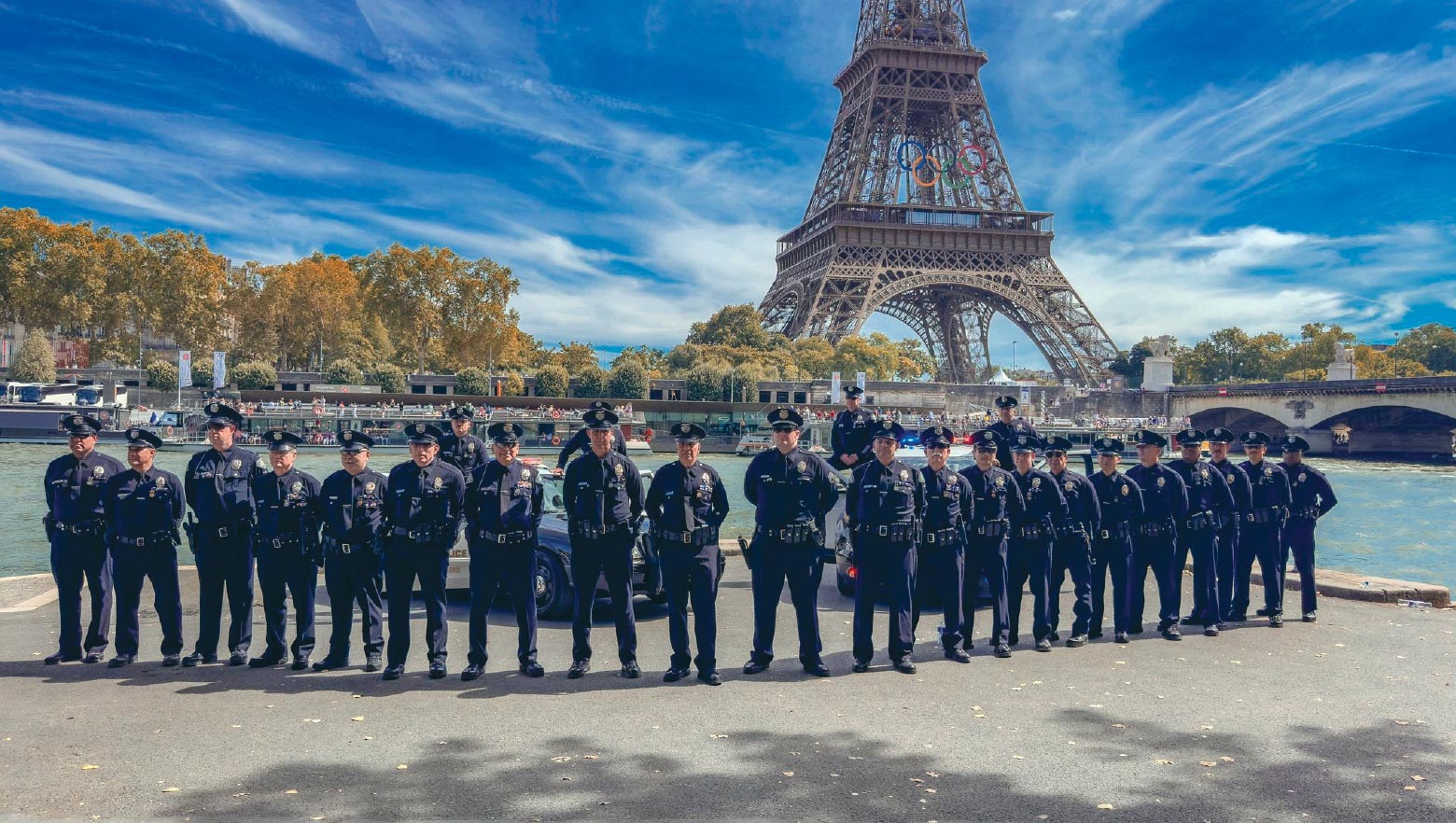
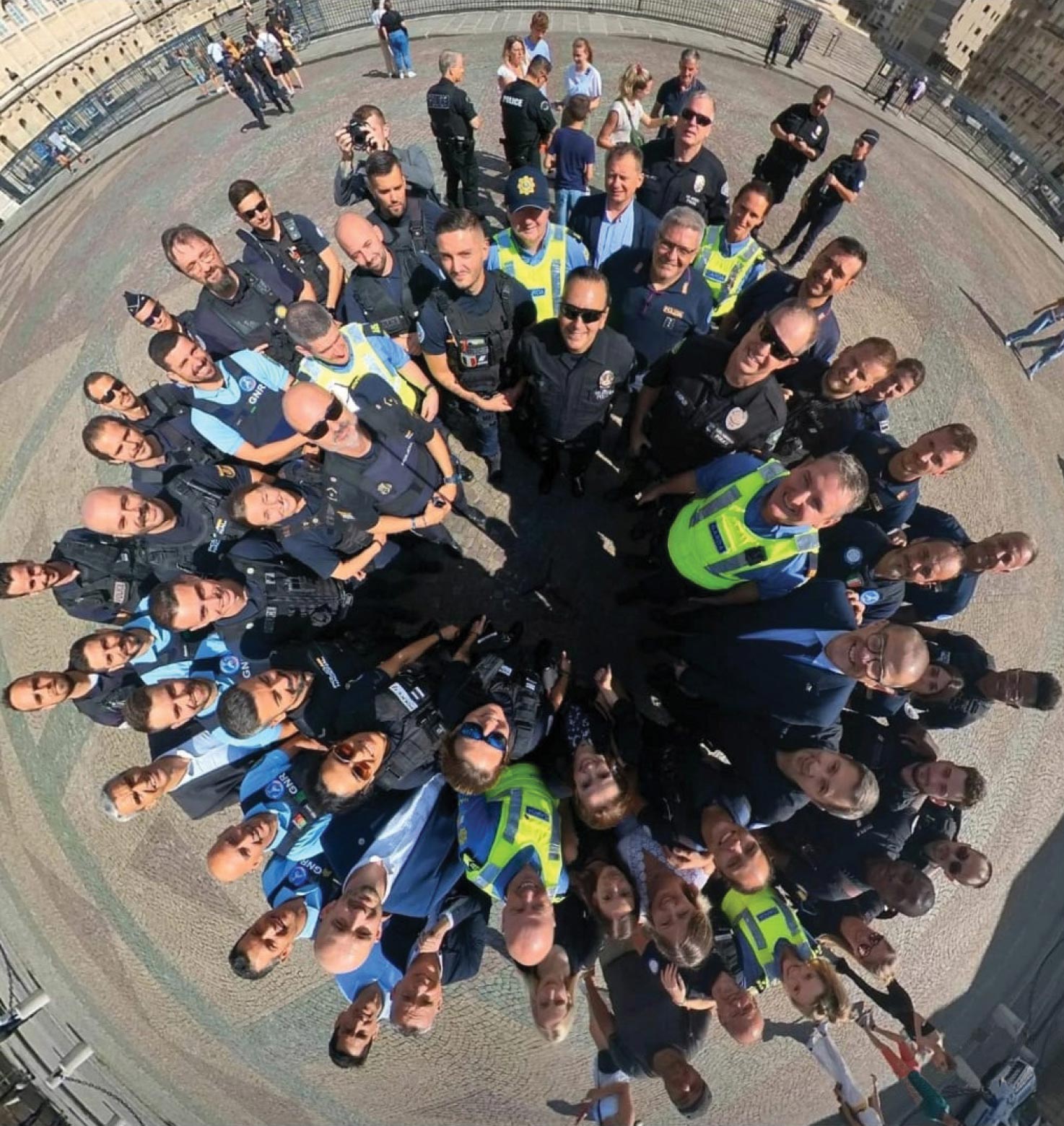
Editor’s note: The following article is based on a white paper debrief (written by Reserve Officers John McCarthy, Bryan Clarke, Justin Davis, Larry Herman, Sammy Hsu, Jeff Pugay and Marcus Stein), individual anecdotes from officers, both attributed and anonymous, and assorted third-party news reports.
In a historic deployment, 30 LAPD reserve police officers, as part of the largest international contingent of officers, embarked on an unprecedented mission to support security efforts at the 2024 Summer Olympics in France. The team, led by Sergeant II Jonathan Johnson, OIC of the Reserve Unit, was joined by a combined delegation of over 40 law enforcement agencies (including 17 representatives from LASD) that worked alongside French authorities to ensure a safe and secure event. This mission, in which coordination was initiated more than three years earlier by Reserve Officer Bernard Khalili, was an example of international cooperation in safeguarding global events like the Olympics. It was the result of meticulous planning and close collaboration. An officer who participated said, “This trip serves as a shining example of when our Reserve Corps is given the trust to complete the mission, we rise to the occasion and succeed.” Another noted, “This innovative use of reserve officers by LAPD allowed the Department to offer robust assistance without affecting deployment at home, not to mention the obvious benefits to the city’s taxpayers.” Reserve Officer Paul Strauss told The Rotator, “The trip highlighted LAPD’s professionalism in the world of international policing.”
Their journey began on July 24 as Air France Flight 21 lifted off from Los Angeles International Airport, carrying the officers across the Atlantic to join law enforcement counterparts from around the world.
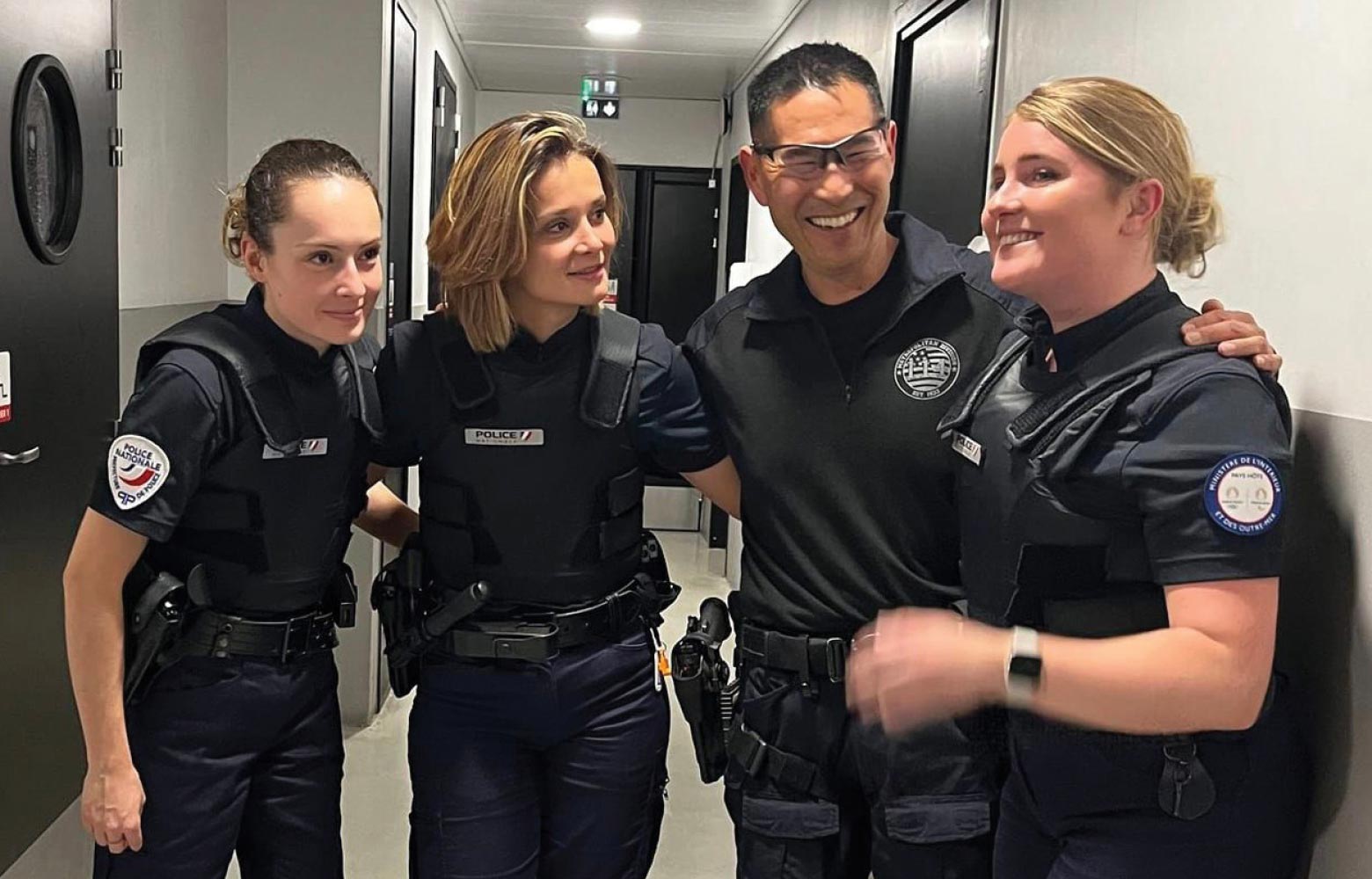
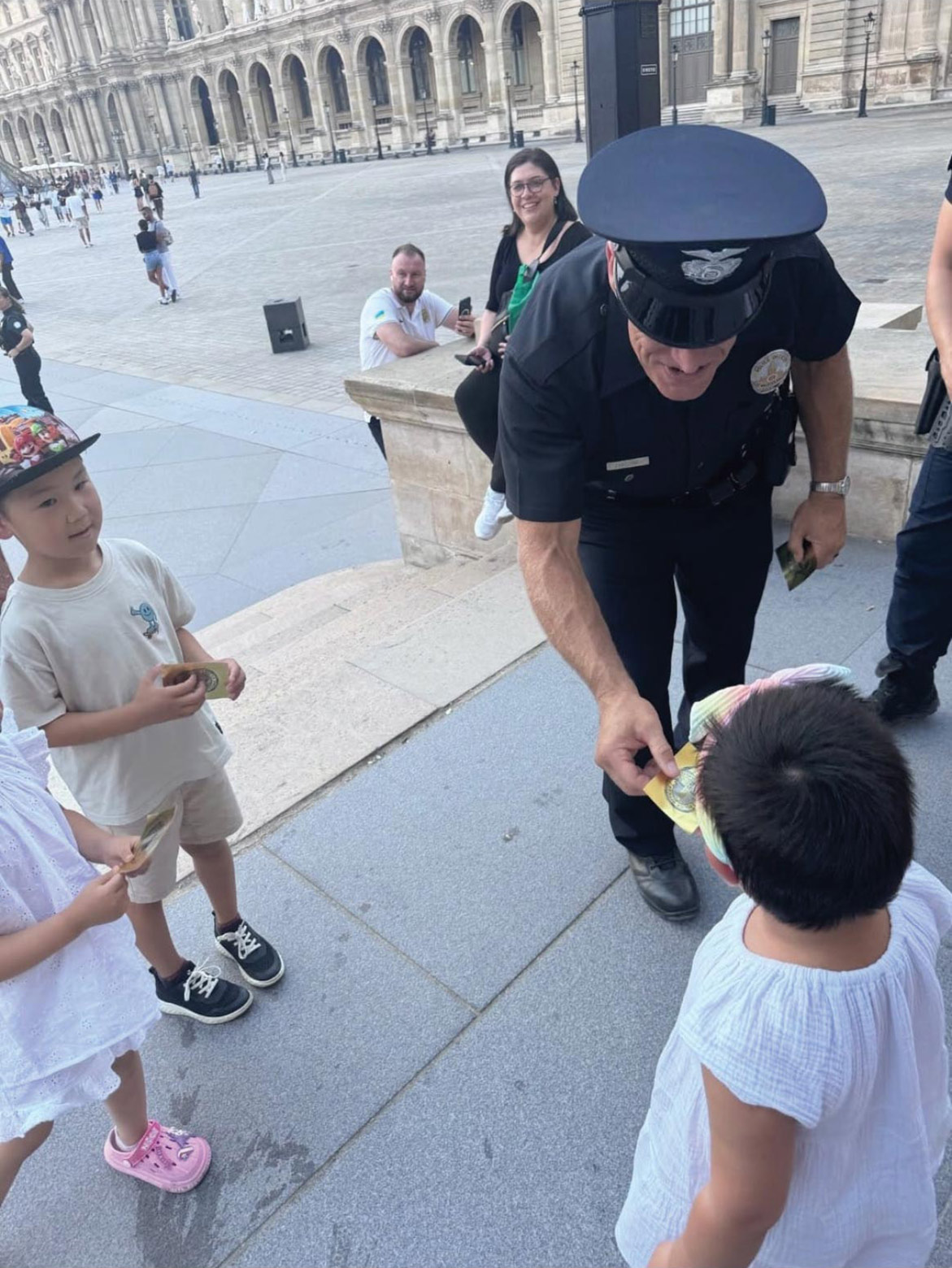
Planning and Organization: A Collective Effort
As the officers gathered for a final pre-deployment meeting on July 13 in the 10th-floor conference room at LAPD Headquarters, the enormity of their mission was clear. Interim Chief of Police Dominic Choi, along with officials from the French Consulate, laid out the details. The officers were briefed on the legalities of operating in France, particularly regarding the use of weapons. “Each officer received official international travel orders and the official authorization to transport a weapon in France. Both documents were issued by the Ministere de l’Intérieur et des Outre-Mer. These documents certified our clearance and authorization to participate in the mission.” This authorization was a critical component of the mission, ensuring the officers were integrated into French law enforcement operations. The coordination extended to travel logistics, with Air France providing a dedicated check-in area to facilitate the complex task of moving officers, baggage and firearms across international borders.
The delegation was divided into three groups: Group A would remain in France for the entirety of the Games, while Groups B and C would rotate in for 10-day periods. A small team of officers was also assigned to the port city of Marseille, where Olympic sailing events were held, and the mission expanded to include the football (soccer) competitions.
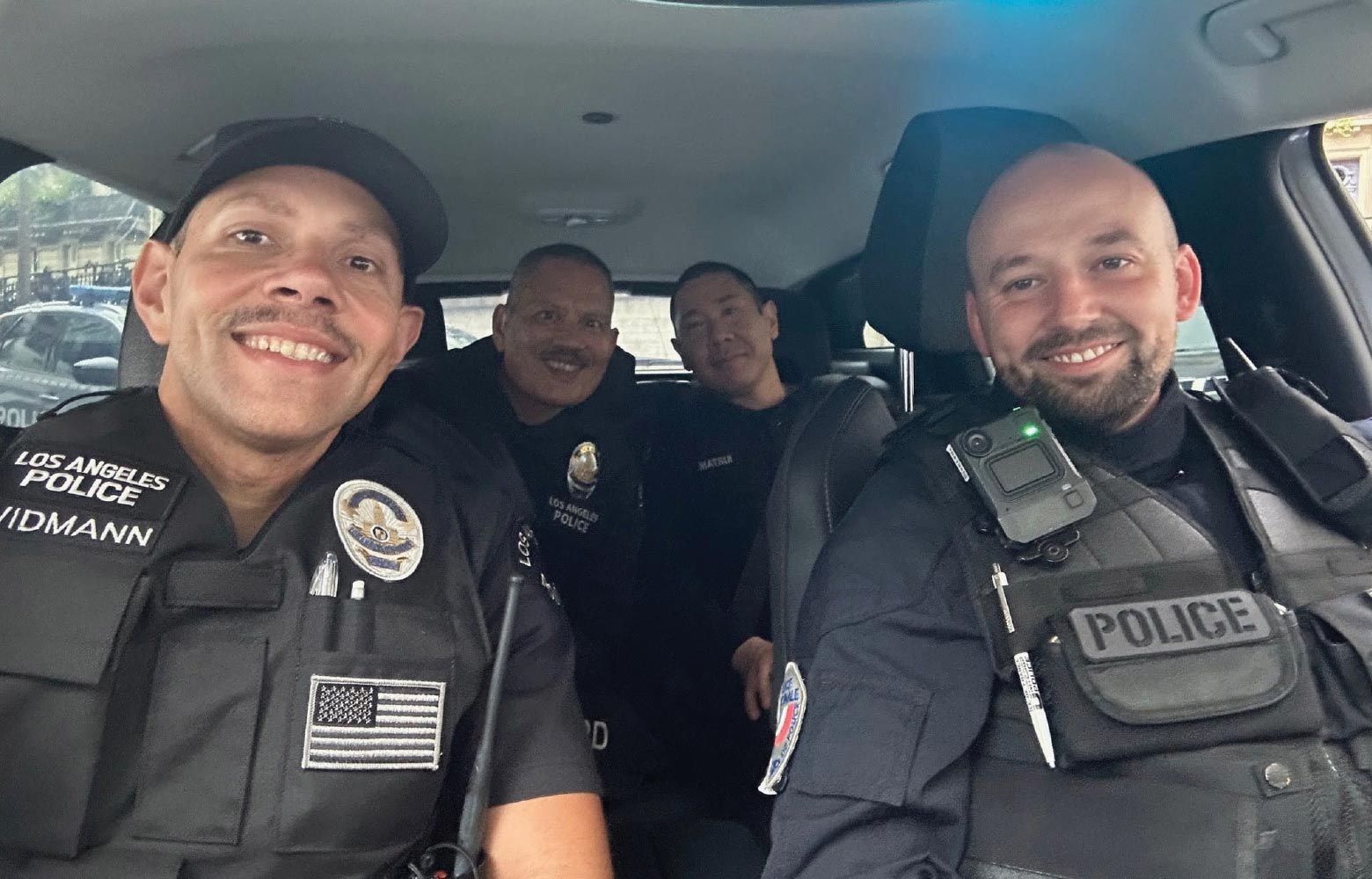
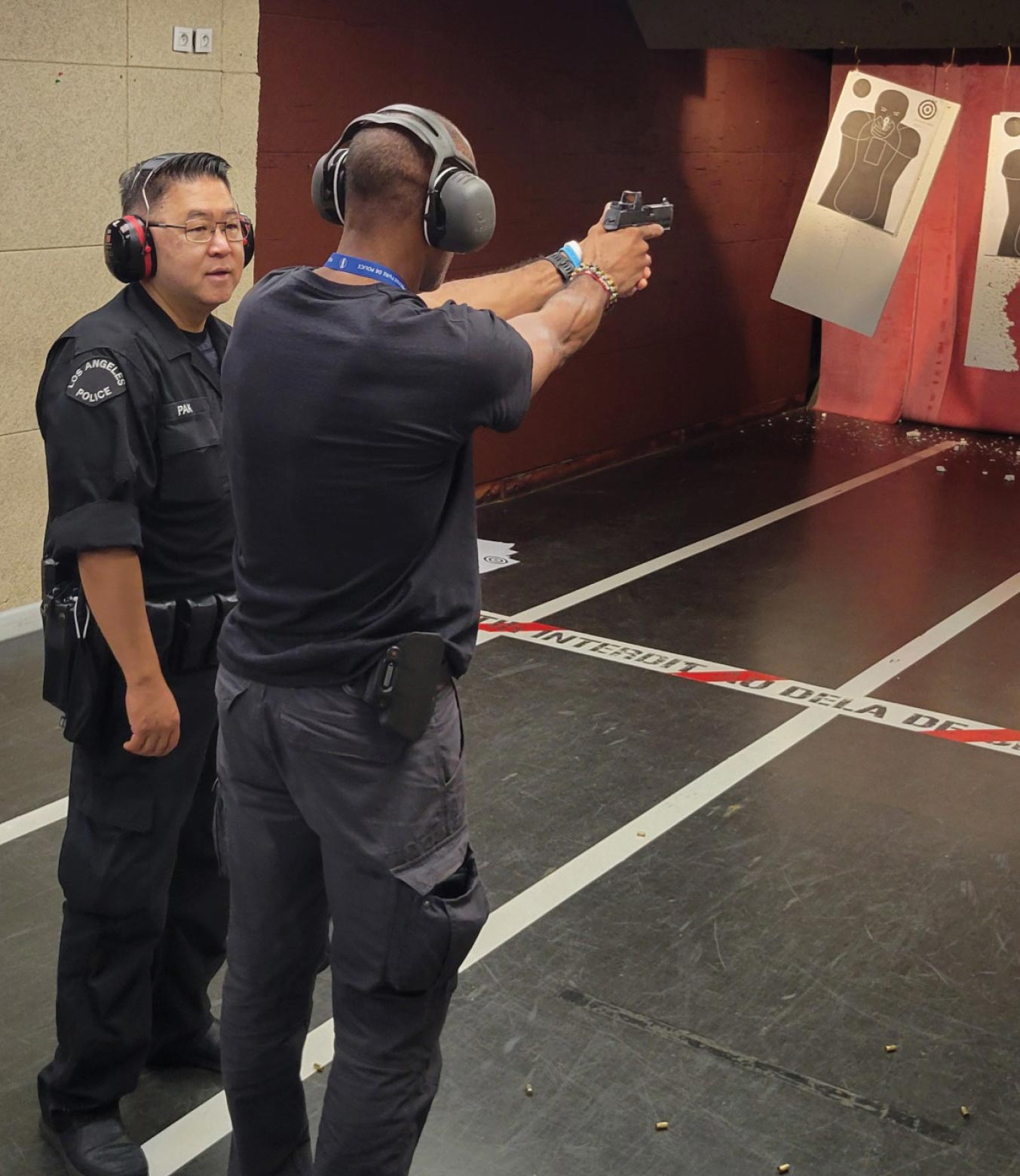
Deployment in Paris: Boots on the Ground
Upon arrival at Charles de Gaulle Airport, the LAPD officers split into two groups. Six officers boarded a train to Marseille, while the remaining members were deployed across three Parisian police districts: the 5th/6th, 8th and 13th arrondissements. These areas, covering key Olympic venues and tourist hotspots, were critical zones for maintaining public safety. The officers were partnered with French counterparts and quickly integrated into the daily rhythm of high-visibility patrols.
LAPD officers worked three days on, three days off, walking foot patrols that spanned iconic landmarks like the Champs-Élysées, the Eiffel Tower and the Louvre Museum. Their Class A uniforms, a visual representation of the LAPD’s storied legacy, attracted attention wherever they went. “It was like walking through a movie set,” one officer remarked, noting how pedestrians often stopped to take photos with them. Reserve Officer Larry Herman said, “Never in my 30 years as an LAPD reserve police officer had I ever been treated as such royalty! Working lengthy foot beat details, walking the streets of Paris, in full LAPD uniform, we were treated like famous movie or rock stars. We were the absolute and envious center of attention, flooded each and every work shift with literally hundreds of requests to pose for photographs! An experience I shall never forget!”
The opening ceremonies on July 26 marked the official start of their deployment. Despite the rain, LAPD officers stood alongside their French counterparts, ensuring the safety of an estimated 500,000 spectators along the Seine.
Reserve Officer Jeff Pugay shared his journal notes with The Rotator: “Together with our French officer colleagues, we walked towards the Notre Dame Cathedral and the Seine River [with French police] Lieutenant Nadia [Bojovic, Group B Team] … I was surprised, as we got closer and closer to the Seine River, stopping at Pont Saint Louis/Quai de l’Archevêché… It started to rain heavily, but in the excitement, no one seemed to mind. We met a high-ranking police commissioner who insisted that we pass through the last barrier to get even closer to watch the boat parade! He even took our photo as the U.S. team boat passed by! Afterwards, Ryan bought our colleagues dinner from a local brasserie where the patrons (standing room only, with primarily U.K. tourists enjoying themselves, drinks in hand), seeing our highly recognizable Class A uniforms, started singing/chanting ‘Los Angeles’…! Quite the welcome! At the end of watch … Cedric and his partner took us in their patrol vehicle with lights and sirens on, Code 3, all the way back to our hotel in Montmartre, in north Paris.”
Chief Choi, who was in Paris for the opening ceremonies, joined the officers on foot patrol, walking the beat in solidarity with his team. His presence highlighted the importance of the mission, not only for the LAPD but also for the city of Los Angeles.
Reserve Officer Bill Ahmanson shared a memory: “One afternoon our Station 13 hosts took us to the Arc de Triomphe. Tourists seemed equally excited about LAPD as the Arc. French officials seized on this by including all officers in a re-dedication of the eternal flame.” Per the white paper, “The 13th District (arrondissement) is a mix of modern high-rises and classic buildings covering approximately four square miles. Unique to the 13th District is Paris’ principal Asian community. The 13th district is also home to Paris’ largest hospital, which spans the length of one city block.”
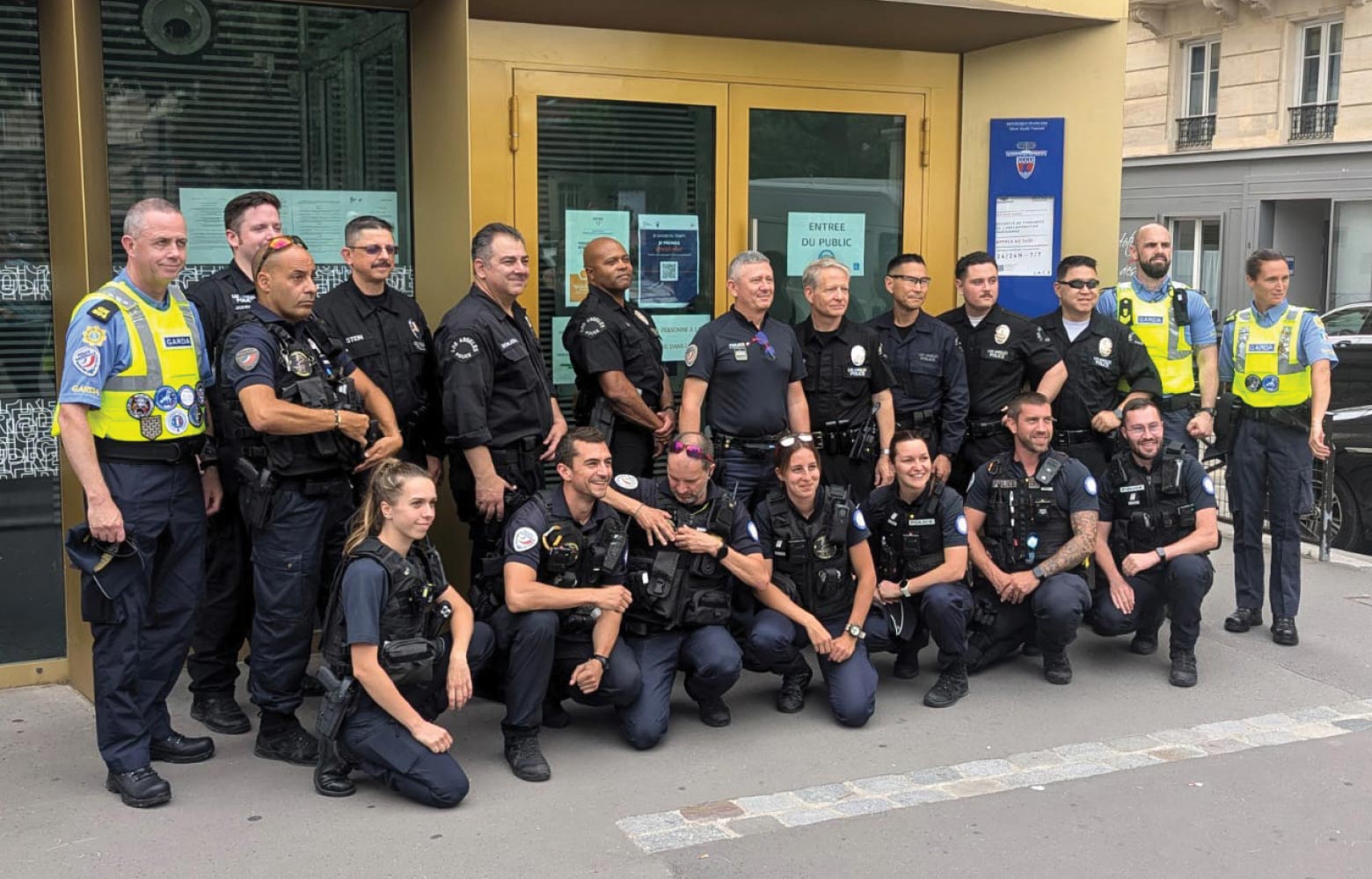
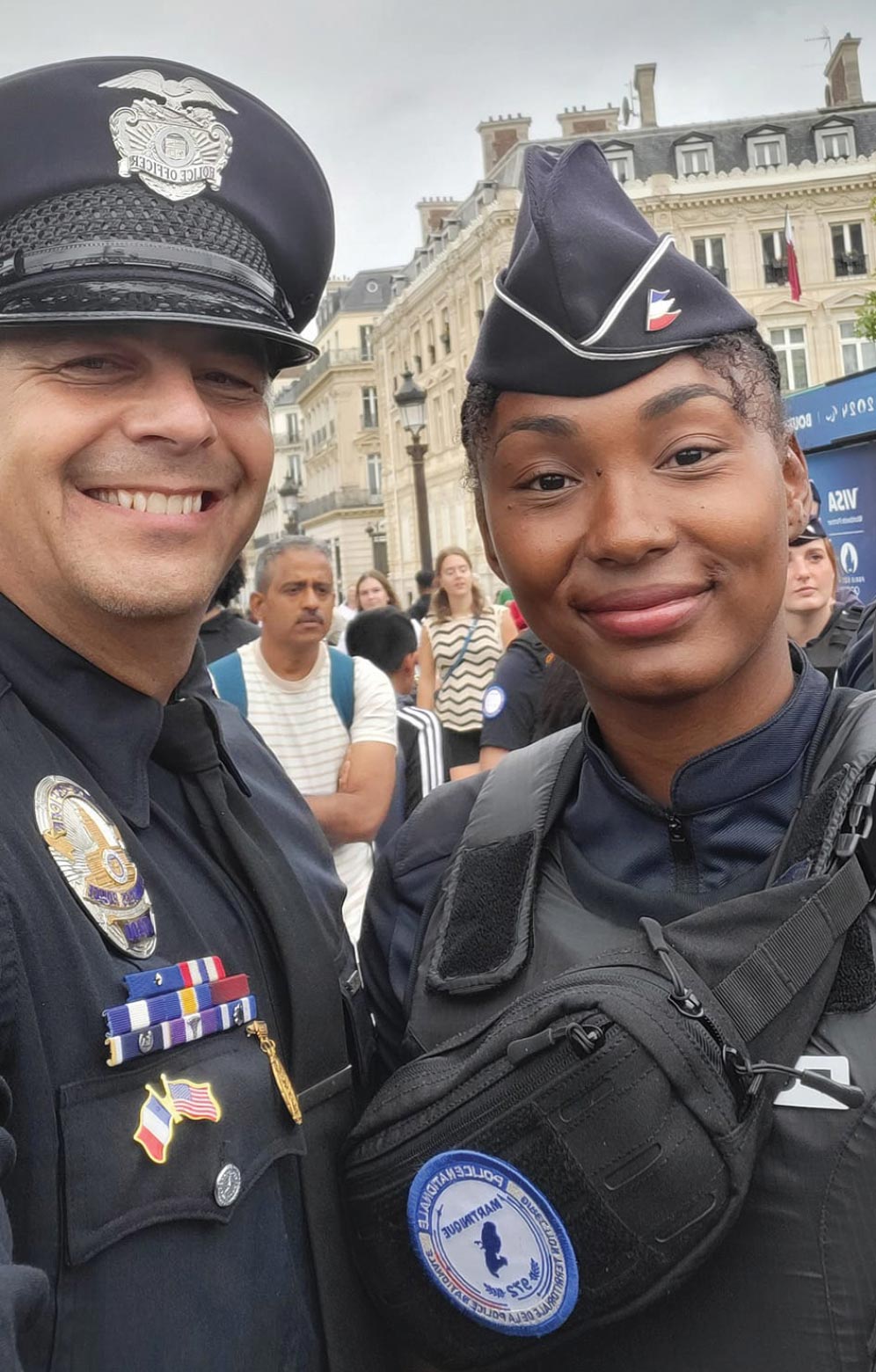
An International Collaboration
The 2024 Summer Olympics in Paris brought together law enforcement officers from across the globe. LAPD officers worked closely with police from Germany, Ireland (the Irish Garda, featured as a cover photo on the LAPRF Facebook page), Spain, Brazil, South Korea and the United Arab Emirates. The collaborative spirit was evident in every patrol, as officers shared experiences, compared tactics, learned from one another and traded a lot of patches.
One of the highlights of the mission was an event hosted by the International Police Association, which brought together foreign law enforcement officers for an evening of camaraderie. French citizens, proud of their association with the LAPD, showcased vehicles and motorcycles outfitted with period-correct LAPD insignia, lights and sirens at the Eiffel Tower. This unique display of appreciation underscored the global reach of the LAPD’s reputation.
The LAPRF hosted a dinner that brought together LAPD officers and French police leadership. Commander Hamed Mohammadi and Captain Shannon White, both members of the LA28 planning team, were in attendance, taking notes on best practices for the 2028 Summer Games in Los Angeles.
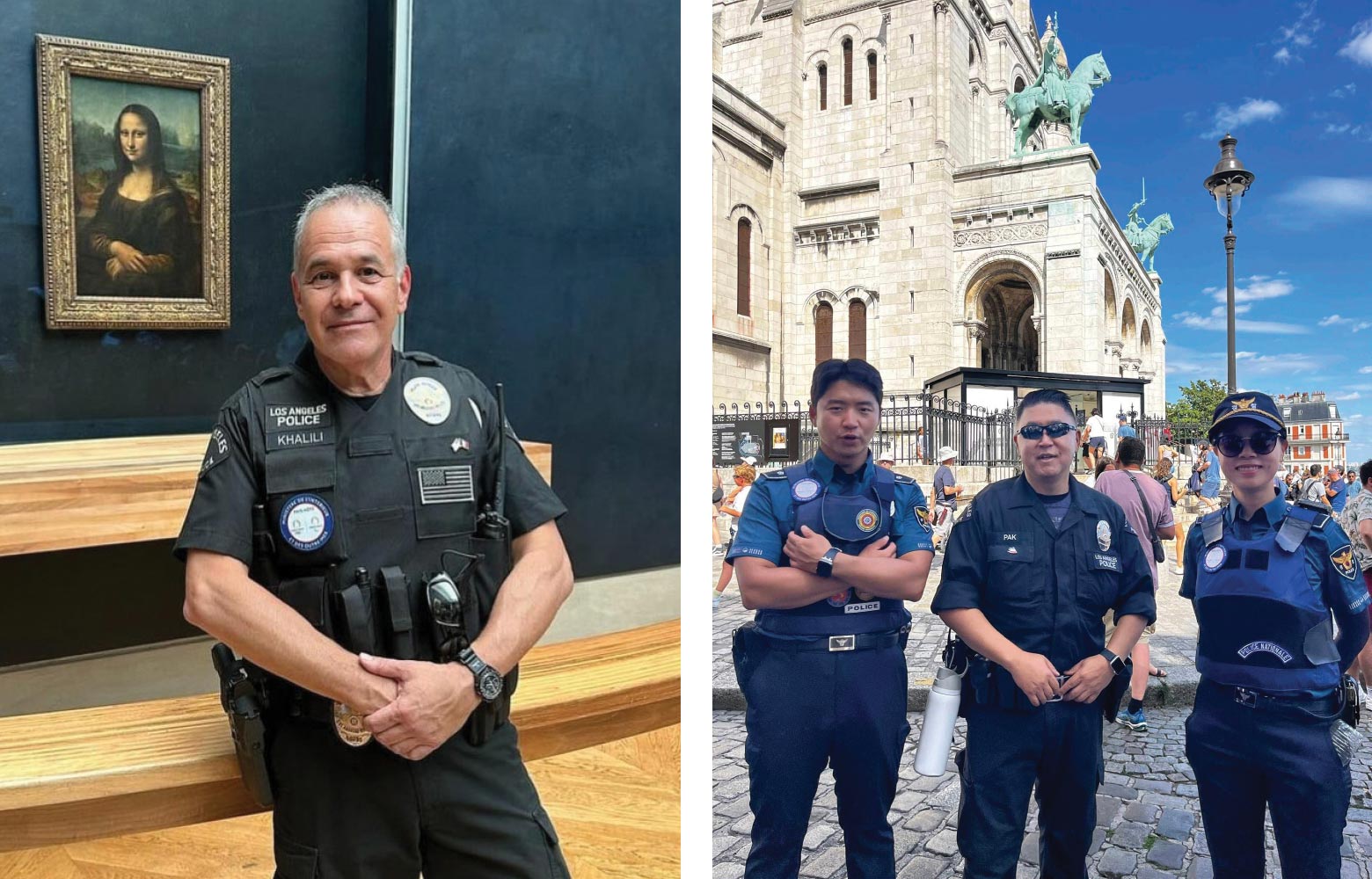
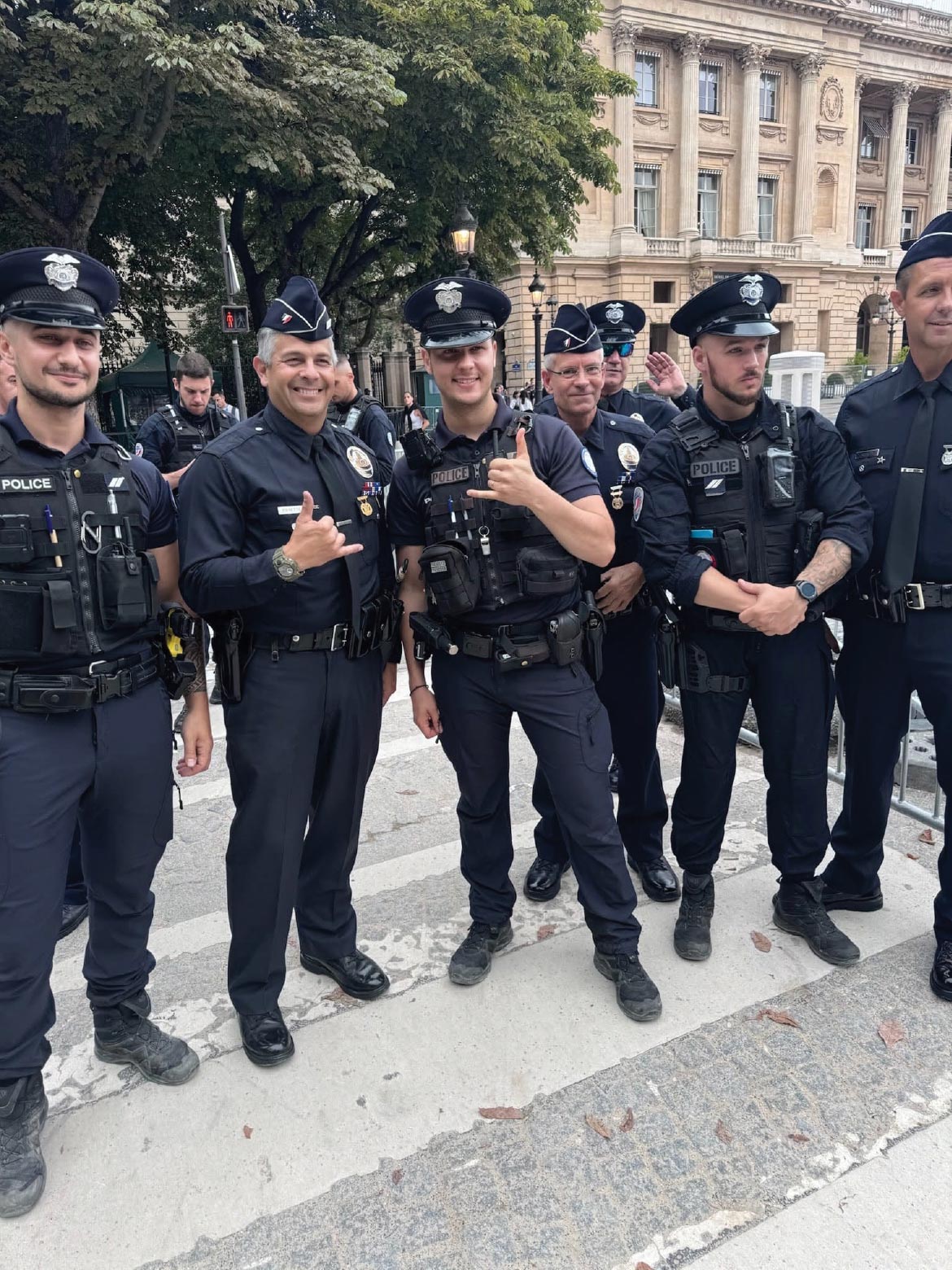
Trading covers for the camera
Deployment in Marseille
In Marseille, a smaller contingent of LAPD officers took part in the security efforts surrounding the Olympic sailing and football competitions. Partnered with French National Police officers, they worked in teams to patrol the city’s bustling marina and central districts, focusing on high-traffic tourist areas. Their duties ranged from foot patrols to investigating drug-related crimes and responding to emergency
situations, such as a suspicious bag at the Olympic viewing park.
The Marseille team also participated in several high-profile law enforcement operations, including a raid on a methamphetamine den and multiple burglary investigations. Their presence at Marseille Stadium during the football matches — where U.S. teams drew large crowds — added an extra layer of security for American fans.
One of the mission’s highlights in Marseille was a tour of the headquarters of the city’s GIGN (Groupe d’Intervention de la Gendarmerie Nationale, or National Gendarmerie Intervention Group), the elite tactical unit of the Gendarmerie Nationale. As stated in the white paper, “Among its missions are counterterrorism, hostage rescue, surveillance of national threats, protection of government officials, critical site protection (such as French embassies in war-torn countries) and targeting organized crime. GIGN … was formed in 1973, shortly after the Munich massacre at the 1972 Summer Olympics.” The tour included demonstrations of their advanced training facilities, equipment and even a full-sized MMA fight ring. This firsthand experience of the capabilities provided LAPD officers with valuable insights into French tactical operations.
The officers’ time in Marseille concluded with, as the white paper reported, “breakfast hosted by the United States Ambassador at her personal residence. Chief Dominic Choi was in attendance along with Pierre-Edouard Colliex, Chief, Le Préfet de Police, Marseille. At this breakfast Officer Bernard Khalili was presented with the National Medal of Courage and Devotion recognizing his efforts in bringing LAPD officers to France for the Olympics and his contributions to strengthening international bonds. All foreign LEOs assigned to Marseille LEO were honored at a luncheon hosted by our Marseille hosts. Officers were presented with gift bags that included a [commemorative] coin of the Préfecture de Police.”
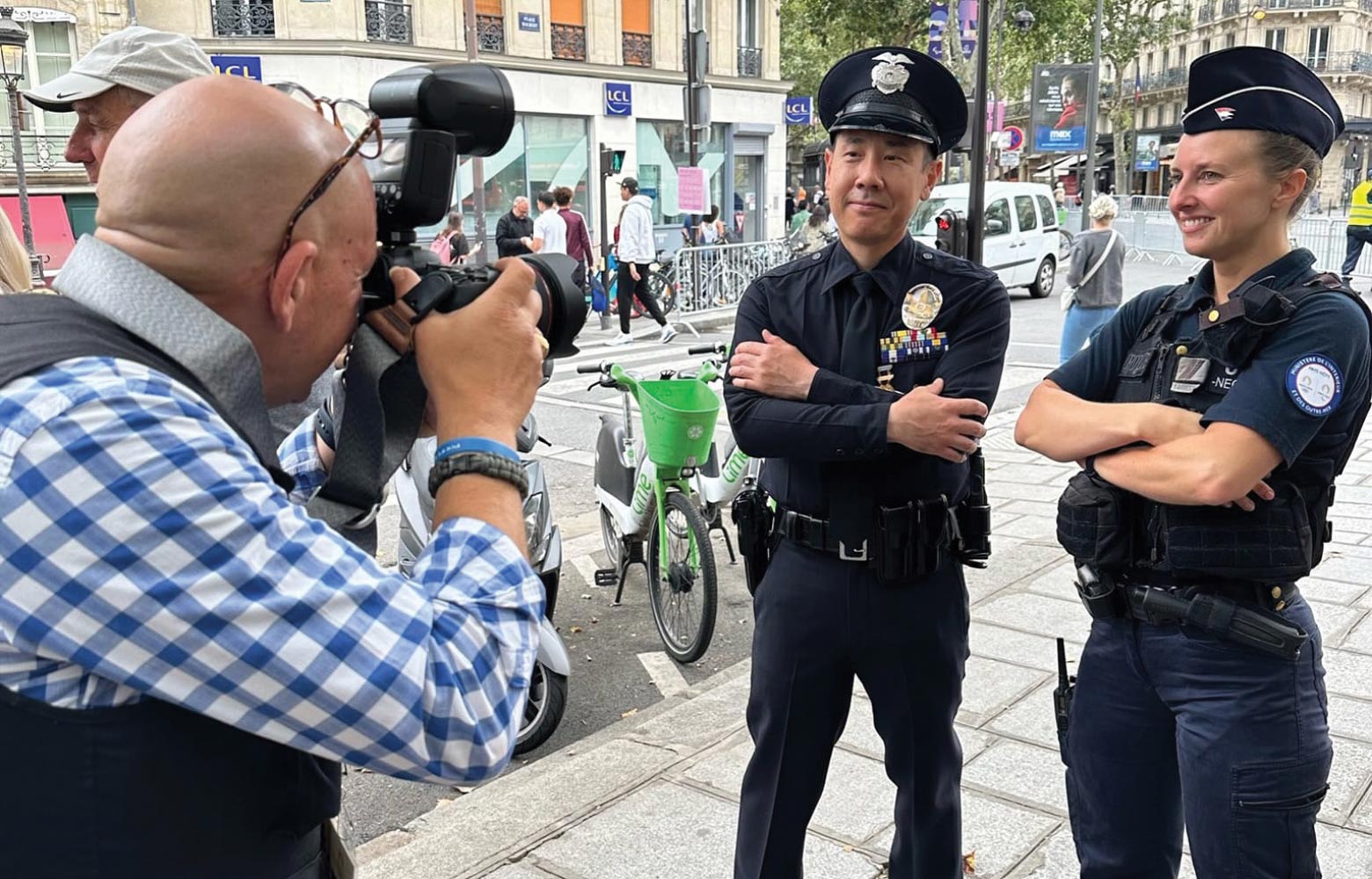
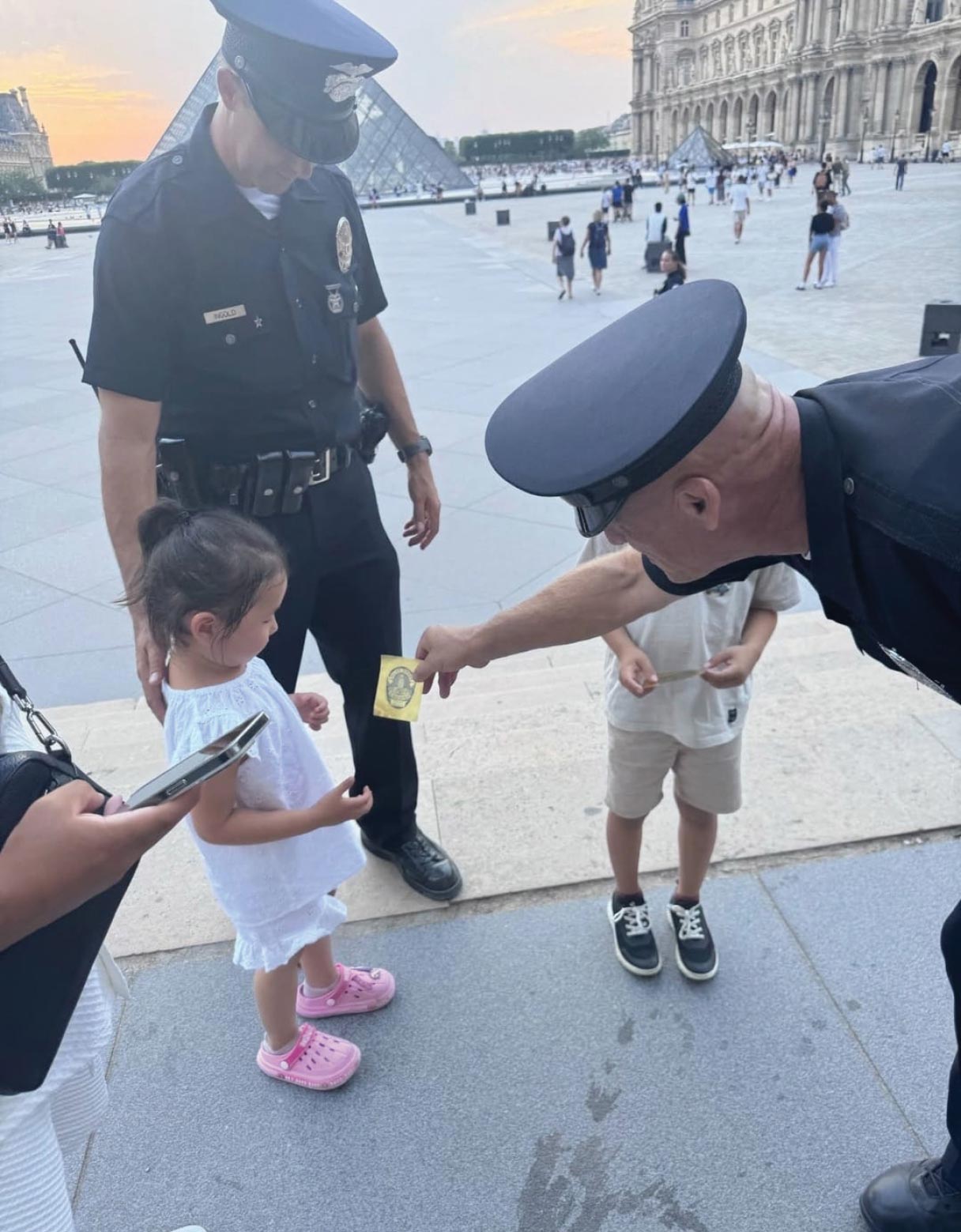
Training and Knowledge Exchange
The exchange of knowledge was a critical component of the deployment. LAPD Reserve Officers Justin Davis and Dr. Kenji Inaba, both experts in tactical medical care, were invited to provide basic medical training to French officers at the 13th District station. Their focus on hemorrhage control, tourniquet application and care under fire was particularly relevant, as French officers had recently experienced a shooting incident that could have benefited from such training. The training sessions highlighted the need for ongoing education in medical response techniques. LAPD officers donated medical supplies, including tourniquet sets, to their French counterparts, leaving a lasting impact on the station’s preparedness for future emergencies.
In addition to the tactical training, Dr. Inaba also met with the medical directors of both GIGN and BRI (the antiterrorism unit in Paris) to discuss collaboration on hemorrhage control research and protocols. These high-level meetings set the stage for future cooperation between U.S. and French law enforcement agencies, particularly in the realm of tactical medicine.
Reserve Officer Ben Pak demonstrated the usage of a pistol-mounted red dot sight. The French only use this on rifles. Being on the range already, an impromptu pistol competition occurred, in the interests of international relations.
Two French officers had been recently injured on duty and were recuperating at home. Reserve Officer Marcus Stein put together a gift package for them, composed of get-well cards, patches and shirts, signed by all LAPD members assigned to Station 13.
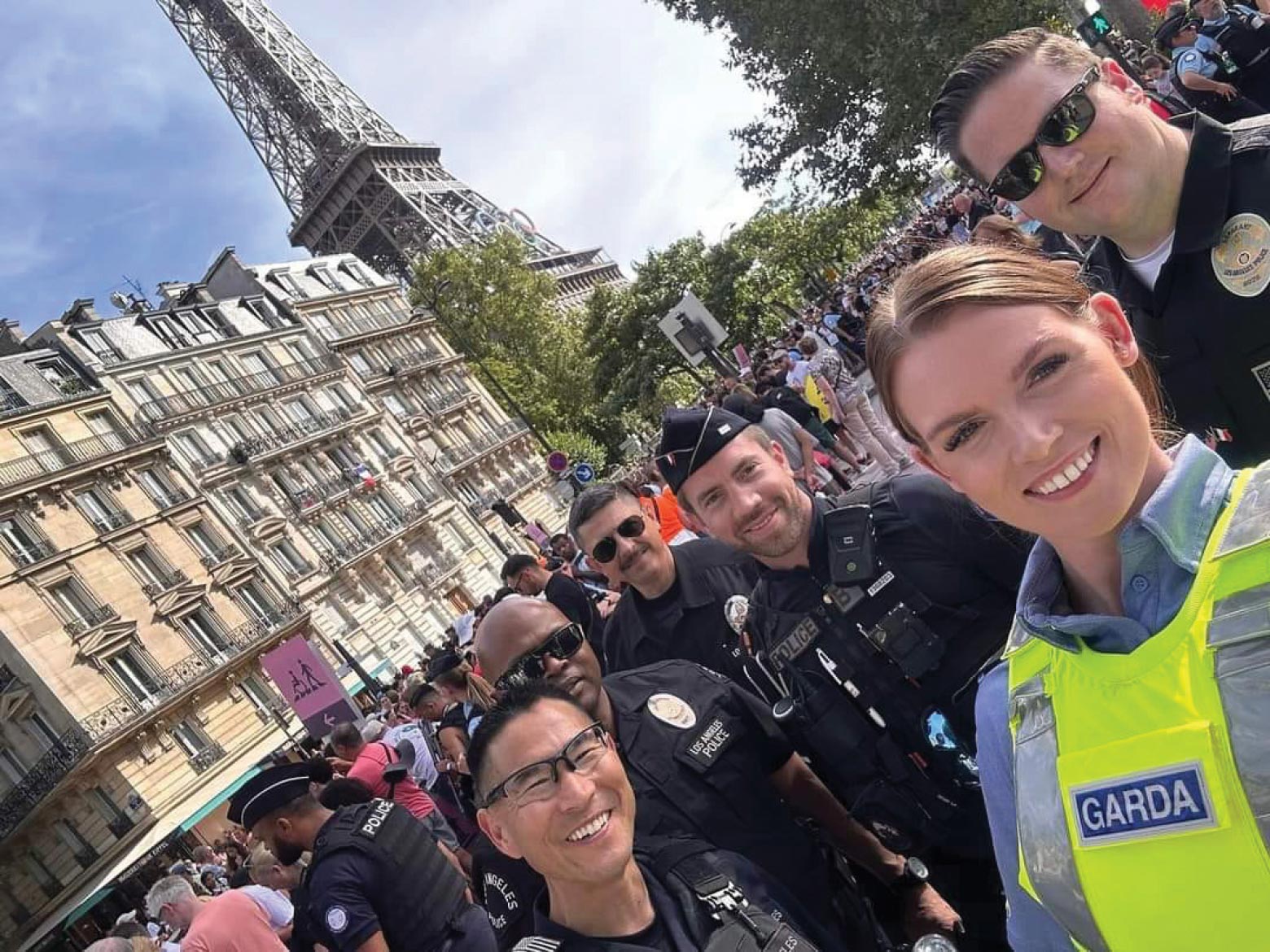
Bridging Cultural Differences
While the LAPD officers quickly adapted to the rhythms of Parisian life, there were notable differences in law enforcement culture and tactics. French officers, for example, emphasized the threat of knife attacks and terrorism over the gun violence concerns more prevalent in the United States. This difference in priorities was reflected in the equipment carried by French officers, who wore lighter, flexible ballistic vests and carried smaller firearms than their LAPD counterparts.
Public perception of law enforcement also varied. While LAPD officers were frequently greeted with enthusiasm by locals and tourists alike, French officers remarked that they were not accustomed to such positive interactions. The LAPD’s iconic status, fueled by Hollywood portrayals, was a source of fascination for many in Paris, who saw the officers as symbols of American pop culture.
An LAPD officer told The Rotator, “A memory that I will hold dear to my heart is how intrigued and curious the French officers were to learn about us. They loved asking questions about our personal life, work life, what we did for hobbies, etc. It was very fun getting to know them and exchanging information about each other’s lives and comparing how law enforcement
is in two different countries. I have never known what it is like to be a celebrity, but for the 10 days I was there, in uniform, I know exactly what that feels like now.”
However, the complexities of operating in a foreign environment were evident, particularly in the realm of emergency driving. In contrast to U.S. traffic laws, which require vehicles to pull over for emergency vehicles, French drivers appeared less inclined to make way for police cars, creating additional challenges during Code 3 responses.
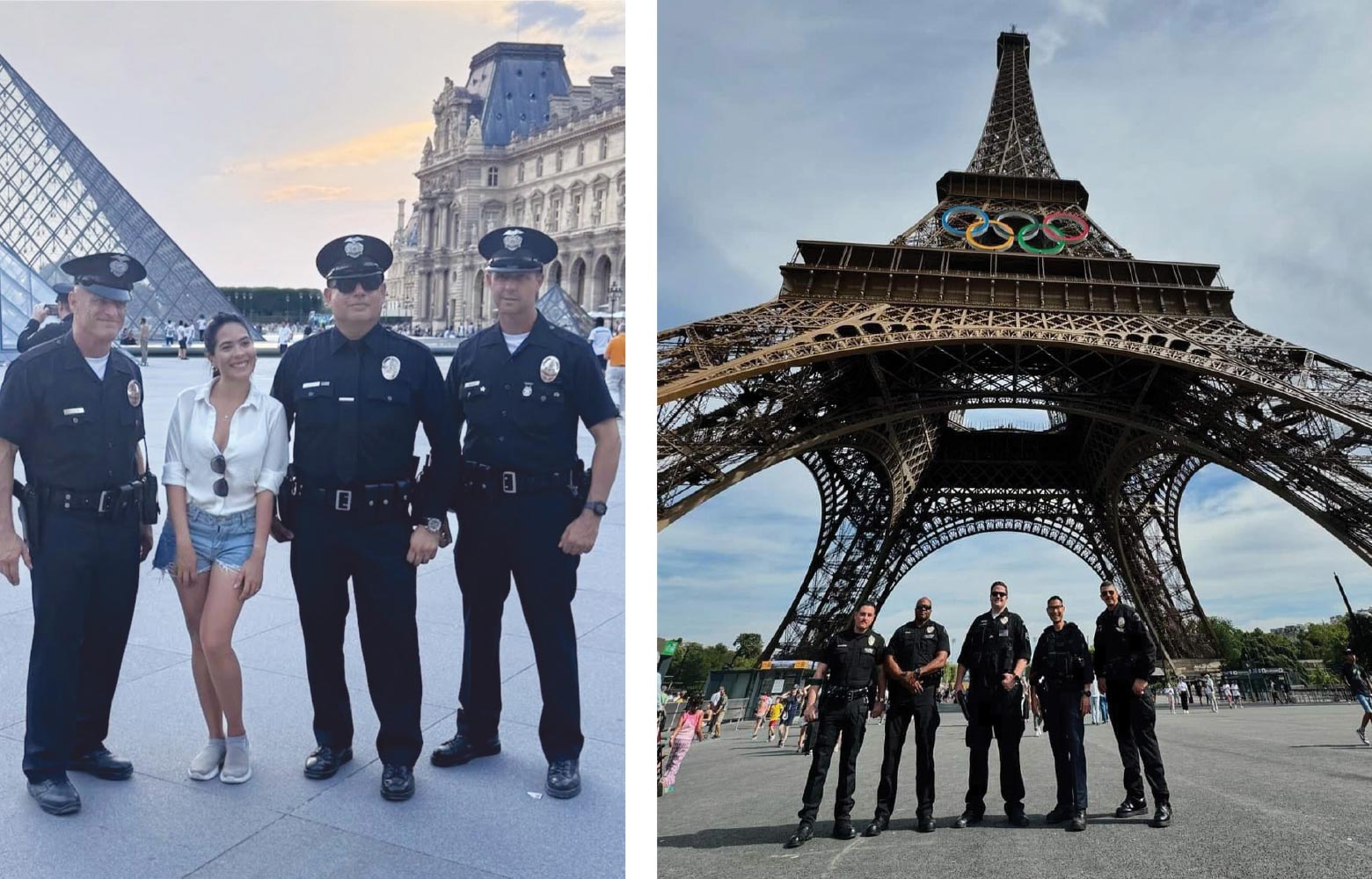
Confidential Planning and Selection: The Paris Mission’s Unique Criteria
The selection of officers for the Olympics mission raised some questions among members of the Reserve Corps, asking why the opportunity was not offered more broadly. As per Department sources, the planning and execution of this international deployment had to remain substantially confidential, a directive issued directly by the Chief of Police. The sensitive nature of the mission required the operation to be kept under wraps until the team landed in France.
This secrecy was not a matter of exclusivity, but a practical measure to maintain security. It would have been impossible to solicit volunteers from the entire Corps while retaining the level of confidentiality that was required. The officers chosen for this mission were not selected at random but were handpicked based on their specialized experience. In particular, many of the reserve officers had regularly served on Dignitary Protection details when foreign officials, including those from France, visited Los Angeles. Their years of working these units earned the trust of the French government, which specifically requested their presence at the Paris Olympics.
The French government had requested a maximum of 30 officers and two supervisors for the mission. To meet this request, the LAPD authorized one full-time supervisor. However, in a move to maximize the number of reserve participants, a second supervisory position was assigned, allowing the inclusion of an additional reserve officer in a leadership role. The officers selected met strict criteria, requiring them to be Level I reserve officers in good standing, with a completed P1 book and a consistent record of working their minimum hours.
As Sergeant Johnson told The Rotator, “I want to emphasize this was a win for all of us. The reserves at the Paris Olympics served with excellence, and in doing so, they not only upheld the values of the LAPD but also represented every reserve with the highest level of professionalism.”
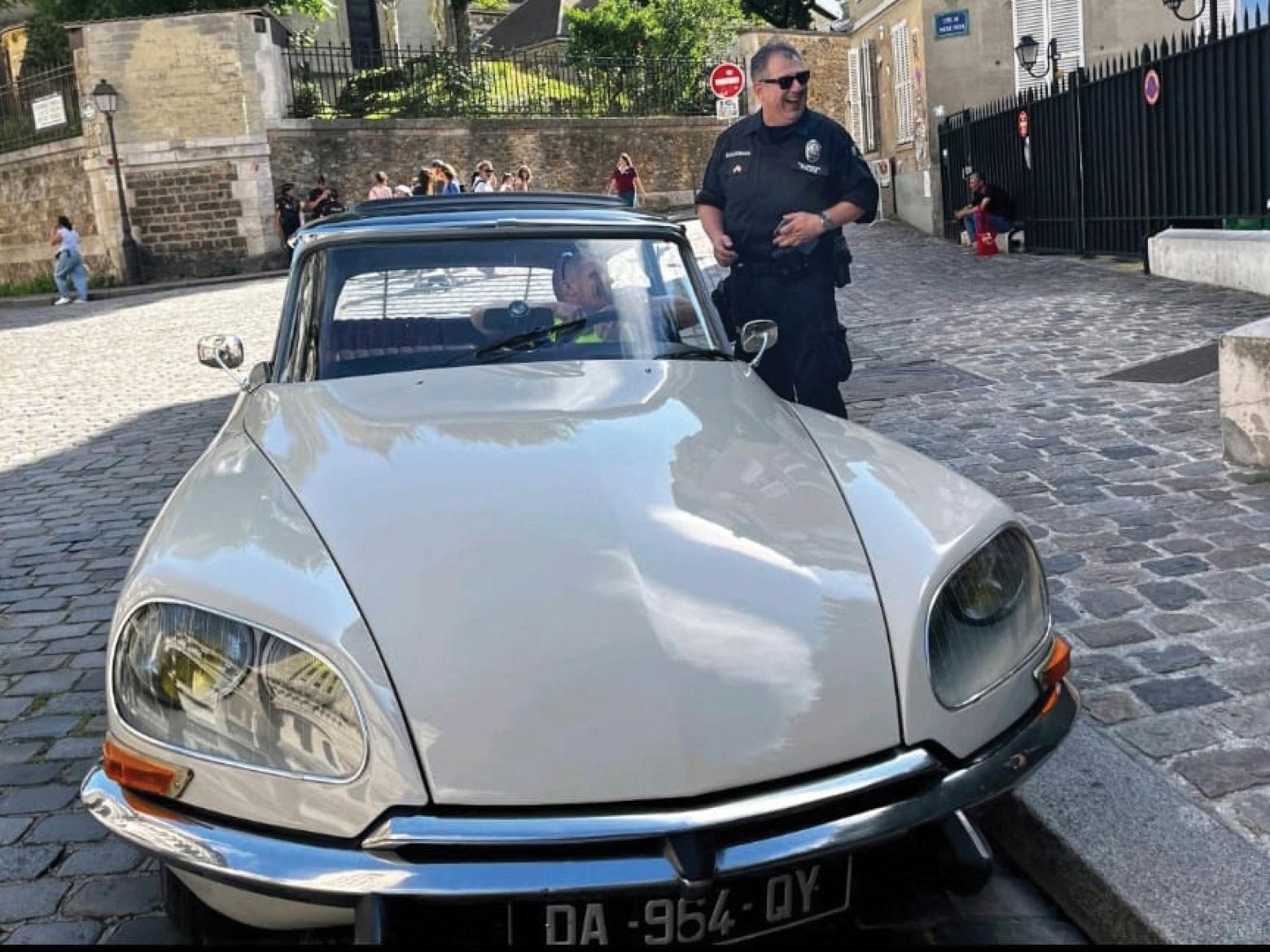
Looking Ahead to Los Angeles 2028
As the Paris mission drew to a close, the focus shifted to the future: the 2028 Summer Olympics in Los Angeles. The LAPD delegation’s experience in France provided invaluable insights into the challenges of securing such a massive event. From crowd control to international cooperation, the lessons learned in Paris should undoubtedly shape the security strategies for LA28.
The participation of LAPD reserve officers in Paris also demonstrated the critical role that reserve officers can play in global events. Their ability to integrate into international operations, coupled with their diverse skill sets, positions the LAPD Reserve Program as a vital resource for the 2028 Games.
The lessons learned will be instrumental in preparing for Los Angeles. With the city expected to host millions of spectators and athletes from around the world in 2028, the LAPD will need to draw on every available resource to ensure the safety and success of the event. LAPD reserve officers working in Paris vividly demonstrated the critical role that the Reserve Corps can play as a vital resource for the 2028 Games.
A Legacy of Service
As the LAPD officers returned home from Paris, they carried with them not only memories of a once-in-a-lifetime experience, but also a sense of purpose. Officer Ahmanson summarized the experience: “The impetus for the trip began as supporting French police as they kept Paris safe. Quickly the trip became a goodwill and sharing of ideas experience. The police presence was so pronounced, there was little crime. L.A. should replicate this in 2028.” Another officer told The Rotator, “It was very common for French citizens to remark how grateful they were that American police came all the way from Los Angeles to help with security. The response from members of the public was overwhelmingly positive. Similarly, the attitudes of our French hosts were truly welcoming, engendering feelings of mutual respect and professional collaboration. This deployment was a home run.”
